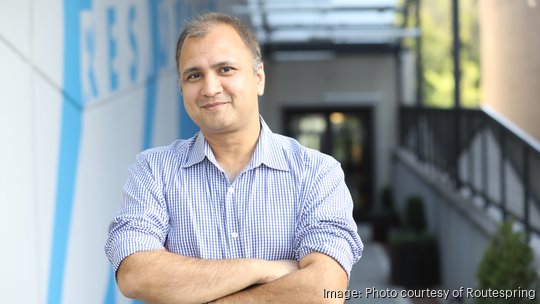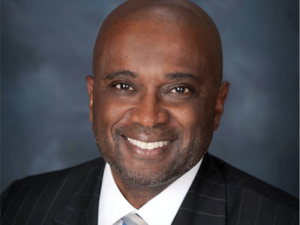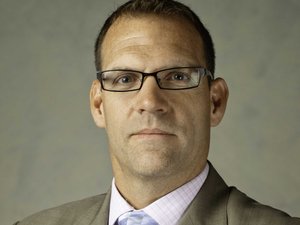
Routespring, a Bethesda AI-powered business travel management company, is looking to go up against the major travel agencies, now boosted by a $500,000 investment from the Maryland Technology Development Corp. (TEDCO).
Founded by CEO Tarun Upaday and CTO Hitesh Sharma, Routespring uses a proprietary AI algorithm to determine such factors as the length, price and risk in travel routes for companies whose workers must travel for their job, like pilots, travel nurses, truck drivers and cruise ship employees. The idea is to avoid travel disruptions or costs like, say, the torrential weather that in December caused delays for almost 30% of Southwest’s flights because the systems that normally connect pilots and flight crews went down, bringing the airline's business to a temporary halt.
“If you do not have a system which can handle it, you basically are relying on people,” Upaday said. “And at a certain point, people can't handle all that complexity unless they are supported. So we believe people should still ultimately make the decision, but they need all these tools to be able to say, 'Oh, the risk is too high.'”
Since the company’s founding in 2020, it raised a total $2 million between a friends-and-family round and the TEDCO investment, according to Upaday. With that latest funding, the company is hiring two salespeople and a marketing group. Upaday declined to specify its employee count or revenue, but said its fewer than 50 people all work remotely.
Upaday himself is a serial entrepreneur who co-founded his first company, Pinelabs Private Ltd., a digital payment processing startup, in India as a college student in 1998. He departed and sold his stake for $200,000 a few years later. That company went on to raise more than $1 billion in 13 rounds, make six acquisitions and receive a $125 million equity stake from PayPal Inc, per Crunchbase.
The second company he co-founded, GlobalLogic, a digital product engineering services company where he helped build and head up the engineering team, later sold a sizable stake after Upaday's 2009 departure to private equity firm Apax Holdings for a reported $420 million. The full company has since sold to Tokyo-based Hitachi Ltd. for $9.6 billion. And Upaday's third venture, Reston-based hCentive Inc., where he was chief technology officer for the health technology company, sold for $140 million to Optum Inc., he said.
After hCentive, he turned angel investor and partner for Vienna's Blu Venture Investors, serving on its cyber investment committee and sitting on several boards, before launching Routespring. He partnered with his fellow Indian Institute of Technology classmate and India-based Sharma.
So, why does Upaday keep pushing the entrepreneurial rock up the hill over and over again? “My No. 2 and No. 3 companies grew pretty big and after a while, I started feeling this is not me,” he said. “This is not what I enjoy the most, or even what I am good at, and there are other people who can do it.”
He started up Routespring in early 2020, just before the pandemic hit and brought air travel to a halt — hardly optimal for a company in his niche. But a key offering since then has been Routespring's service to help customers redeem and recover unused airfare credits. It's also why Upaday said the company is targeting industries such as health care and logistics that required travel even during the lockdowns.
Still, Upaday knows a big challenge remains marketing. It's a small company trying to go head-to-head with established travel agencies and service brands with scores of resources. Though, he argues, their size may make it harder to change entrenched practices, leaving room for his firm to offer AI tools that those older firms may consider "highly risky."
"They still have deep pockets. Maybe they don't have better technology, but they have more salespeople and more marketing, and that's the work which [we] are trying to do with the help of TEDCO," he said. "So we think when [we] go out in the market, we give the message slowly, people will appreciate it, understand it and ultimately buy it."




